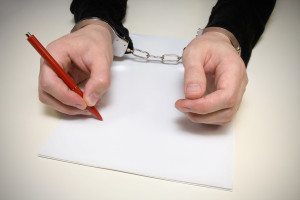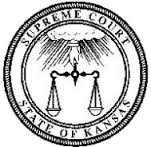 “If you tell the truth you don’t have to remember anything.” – Mark Twain
“If you tell the truth you don’t have to remember anything.” – Mark Twain
Give patent attorney Stephen Robinson at least a little credit – he was honest about being dishonest. The fact he self-reported his ethical violations to the Kansas Bar was not enough to save his state law license. In re Stephen R. Robinson, No. 107,311 (Kan. Sup. Ct.). Nor was it sufficient to avoid disbarment from the USPTO. See In re Robinson, No. D2012-34 (USPTO Dir.)
Robinson was first admitted to the practice of law in Kansas in 1986. His ethical problems began in approximately 2009. According to the complaint filed in Kansas, Robinson took funds from a client to prepare a patent application, failed to provide any services, and pocketed the fee.
Whether overcome with guilt or simply a sense of moral obligation, Robinson decided to report himself to the Kansas Bar. In a remarkably candid letter, Robinson wrote the following admission:
This is to memorialize our telephonic conversation Monday, April 19, at approximately 1 pm. As we discussed, I believe I have committed one or more ethical violations with regard to a transaction concerning one particular client. The facts are these: 1) the client gave me funds to file a patent prosecution document before the United States Patent and Trademark Office (USPTO); 2) the funds were intended to cover both my fee for doing the work and a USPTO filing fee associated with the official filing; 3) I commingled the funds by depositing them in my own personal account (I do not currently have either a professional or trust account); 4) I spent the funds for my personal use (a total of approximately $2,400); and 5) the document in question has not yet been filed with the USPTO.
Robinson advised the Kansas Bar he had contacted the client and advised her of the facts, and that the client stated she still wanted the work to go forward with his services. Robinson further represented he had made arrangements to begin preparing the application and promised he would report to the Kansas Bar after the patent application was filed. Despite his promises, Robinson failed to advise the Kansas Bar whether he filed the client’s patent application.
A hearing panel of the Kansas Bar concluded as a matter of law that Robinson violated Kansas Rule of Professional Conduct 1.15 by failing to properly safeguard his client’s property when he deposited unearned attorney fees in the amount of $2,400.00 into his personal bank account and converted the unearned attorney’s fees by spending the fees on personal expenses. The hearing panel further found a violation of Kansas Rule of Professional Conduct  8.4(c), which states, “It is professional misconduct for a lawyer to . . . engage in conduct involving dishonesty, fraud, deceit or misrepresentation.” The hearing panel determined Robinson engaged in conduct that involved dishonesty when he converted $2,400.00 of client money to his own use. Applying the American Bar Association Standards for Imposing Lawyer Sanctions, the hearing panel recommended disbarment. The Supreme Court of Kansas agreed and entered an order disbarring Robinson.
8.4(c), which states, “It is professional misconduct for a lawyer to . . . engage in conduct involving dishonesty, fraud, deceit or misrepresentation.” The hearing panel determined Robinson engaged in conduct that involved dishonesty when he converted $2,400.00 of client money to his own use. Applying the American Bar Association Standards for Imposing Lawyer Sanctions, the hearing panel recommended disbarment. The Supreme Court of Kansas agreed and entered an order disbarring Robinson.
The USPTO eventually learned of the discipline imposed in Kansas and instituted reciprocal disciplinary proceedings. Pursuant to 37 C.F.R. § 11.24(a), the OED Director filed a Complaint for Reciprocal Discipline with the USPTO Director predicated on the Kansas disciplinary action. 37 C.F.R. § 11.804(h) makes it professional misconduct for a practitioner to be publicly disciplined for ethical or professional misconduct by any State authority. The USPTO Director thereafter issued a notice to the patent attorney to show cause why the USPTO should not impose the same discipline imposed in Kansas. Unlike in non-reciprocal discipline proceedings in which the USPTO bears the burden of proof, in a reciprocal disciplinary proceeding, the practitioner bears the burden of coming forward with admissible evidence sufficient to generate a genuine issue of material fact why the same discipline imposed in the other jurisdiction should not be imposed in the USPTO. 37 C.F.R. § 11.24(b)(1)-(3).
The practitioner bears a difficult burden of proving why he or she should receive a lesser disciplinary sanction than what was imposed in the other jurisdiction. Only four limited grounds exist for challenging imposition of reciprocal discipline at the USPTO: (1) lack of due process; (2) “infirmity of proof” in the other proceeding; (3) grave injustice; or (4) the practitioner was not, in fact, disciplined. In this case, Robinson failed to respond to the reciprocal discipline complaint within forty days. Thus, no genuine issue of fact was raised to warrant the imposition of different discipline.
As a result, the USPTO Director issued a final order excluding Robinson from the practice of patent, trademark, and other non-patent law before the USPTO. Under current USPTO rules, Robinson may apply for reinstatement after five years.